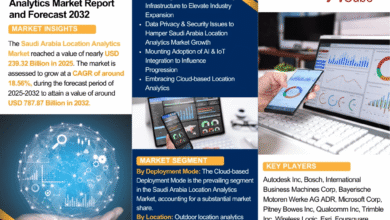Best ESG Reporting Software: A Complete Guide to Choosing the Right Platform for Your Sustainability Goals

Introduction to ESG Reporting and Its Importance
Environmental, Social, and Governance (ESG) reporting has become a cornerstone of sustainable business practices in the 21st century. It is no longer just about financial performance; investors, stakeholders, and customers want to know how a company impacts the environment, treats its employees, and maintains transparency in its operations. The best ESG reporting software helps companies gather, track, analyze, and disclose this data efficiently, ensuring compliance, accountability, and strategic sustainability. With ESG requirements becoming more stringent worldwide, companies must find the right tools to manage this complex process.
What Is ESG Reporting Software?
ESG reporting software is a digital platform or suite of tools that allows organizations to collect, monitor, and report data related to their ESG performance. It typically includes features like automated data collection, dashboards, real-time analytics, report generation, and integration with third-party frameworks such as GRI (Global Reporting Initiative), SASB (Sustainability Accounting Standards Board), TCFD (Task Force on Climate-Related Financial Disclosures), and CDP (Carbon Disclosure Project). The best ESG reporting software not only helps companies meet compliance standards but also supports internal decision-making by providing actionable insights into sustainability performance.
Why Companies Need ESG Reporting Software
The growing emphasis on corporate transparency and sustainable development means that manual reporting or fragmented systems are no longer sufficient. Businesses across sectors face mounting pressure from regulators, investors, customers, and even employees to demonstrate social responsibility and environmental stewardship. ESG reporting software ensures accuracy, consistency, and efficiency in data reporting. It minimizes human error, supports real-time updates, and offers secure cloud-based access to stakeholders. Moreover, it allows businesses to benchmark their performance, identify risks, and align with international ESG standards. Without the right software, companies risk falling behind their competitors and may face regulatory penalties or reputational damage.
Key Features of the Best ESG Reporting Software
When evaluating ESG software platforms, it’s essential to look for a feature-rich solution tailored to your organization’s specific needs. The best ESG reporting software typically includes the following features:
Automated Data Collection: Seamlessly gather data from internal systems, spreadsheets, IoT sensors, and external databases to streamline the reporting process.
Customizable Dashboards: Visualize ESG metrics through interactive dashboards for better internal communication and decision-making.
Real-time Analytics and Benchmarking: Gain insights into your sustainability performance with analytics that allow you to compare progress over time and against industry benchmarks.
Compliance with Multiple Frameworks: Easily align with popular ESG standards like GRI, SASB, TCFD, CDP, and UN SDGs with pre-configured templates.
Audit Trail and Data Verification: Ensure transparency and accountability through secure logs and traceability of all reported data.
Cloud-based Accessibility: Enable teams across multiple geographies to collaborate, update, and review ESG data securely.
Integrated Carbon Accounting Tools: Track Scope 1, 2, and 3 emissions and set reduction targets in line with net-zero goals.
User-friendly Interface: Empower non-technical users to navigate the platform with minimal training and high efficiency.
Risk Management Modules: Identify ESG risks such as supply chain vulnerabilities or regulatory non-compliance and mitigate them proactively.
Reporting Automation: Generate investor-ready reports and sustainability disclosures with just a few clicks.
Top Benefits of Using the Best ESG Reporting Software
Investing in the right ESG software goes beyond regulatory compliance. It brings strategic value and long-term competitive advantage. The top benefits include:
Enhanced Decision-making: Access to real-time, reliable ESG data enables executives to make informed strategic decisions.
Improved Stakeholder Communication: Clear, consistent reports build trust with investors, regulators, employees, and the community.
Operational Efficiency: Automated processes reduce the time, cost, and complexity of ESG reporting.
Risk Reduction: Proactive ESG risk identification and management enhance corporate resilience.
Reputation Management: Transparent reporting strengthens brand reputation and corporate image.
Investor Attraction: ESG-aligned companies attract long-term investors who prioritize ethical and sustainable growth.
Regulatory Compliance: Stay ahead of evolving ESG regulations globally and avoid legal penalties.
How to Choose the Best ESG Reporting Software for Your Business
Selecting the right ESG reporting platform depends on your organization’s industry, size, ESG maturity level, and specific reporting goals. Here’s a checklist to help you choose wisely:
Assess Your Needs: Understand the type of ESG data you need to collect and the standards you must comply with.
Scalability: Choose a solution that grows with your company and can handle increasing data volumes over time.
Integration Capabilities: Ensure the platform integrates with existing ERP, HR, financial, and carbon accounting systems.
Security and Compliance: Prioritize software with robust data security, encryption, and compliance certifications (like ISO 27001).
User Training and Support: Opt for vendors that provide onboarding, training, and dedicated customer support.
Customization: Ensure the platform allows for customization of metrics, templates, and visualizations to fit your needs.
Demo and Trial: Always test the platform with a demo or free trial to assess its usability and performance in your environment.
Customer Reviews and Case Studies: Research existing user feedback and success stories in your industry.
Top 10 Best ESG Reporting Software in 2025
Here are the most reliable and popular ESG reporting software platforms used by companies worldwide:
1. SpheraCloud ESG
SpheraCloud ESG offers powerful ESG and sustainability solutions for large enterprises. It provides comprehensive ESG data management, real-time dashboards, carbon accounting, and robust compliance tools. It supports major ESG frameworks and offers strong data validation features.
2. Workiva ESG Reporting
Workiva is a top-tier ESG reporting software known for its intuitive user interface and integrated reporting system. It supports XBRL tagging, audit trails, and automated report generation. It is particularly popular among public companies and financial institutions.
3. Diligent ESG
Diligent ESG is known for its powerful governance and compliance tracking capabilities. It offers automated data collection, risk assessment modules, and sustainability metrics that align with multiple global frameworks. The platform is ideal for risk-conscious organizations.
4. FigBytes
FigBytes offers an all-in-one ESG and sustainability platform designed for enterprises aiming to embed ESG across business units. It stands out for its impact modeling, climate action plans, and sustainability storytelling tools that engage stakeholders.
5. Novisto
Novisto combines ESG data governance with investor-grade reporting tools. It excels in data quality control, integrated audit trails, and regulatory alignment. Novisto is ideal for companies that want data-driven insights and investment-grade disclosures.
6. Benchmark ESG
Benchmark ESG (formerly Gensuite) offers scalable ESG modules that support compliance, carbon management, and performance benchmarking. The platform is especially beneficial for manufacturing and industrial sectors.
7. EcoVadis
EcoVadis provides ESG assessment and reporting services with a focus on supply chain sustainability. Its robust scorecards help companies monitor supplier compliance and drive responsible sourcing.
8. Enablon
Enablon by Wolters Kluwer is known for its enterprise risk and compliance management features. It offers comprehensive ESG modules, strong integration capabilities, and customizable reporting.
9. Persefoni
Persefoni specializes in carbon management and climate disclosure reporting. It offers automated Scope 1, 2, and 3 emissions tracking with AI-driven analytics, making it a go-to choice for companies with net-zero targets.
10. Plan A
Plan A is an emerging ESG software designed for SMEs and mid-sized businesses. It simplifies ESG data tracking, report generation, and climate impact assessment with an easy-to-use interface and cost-effective pricing.
Trends Shaping the Future of ESG Reporting Software
As the ESG landscape evolves, reporting software is also undergoing significant transformation. Key trends influencing the development of these platforms include:
AI and Automation: Artificial Intelligence is enhancing data analytics, predictive modeling, and automated reporting. ESG software now uses AI to identify data anomalies and forecast sustainability trends.
Blockchain for Transparency: Some platforms are exploring blockchain to ensure immutable, verifiable ESG data trails.
IoT Integration: Real-time environmental data from sensors and devices are being directly integrated into ESG dashboards.
ESG Ratings and Benchmarking: Software is beginning to include ESG scores and benchmarking tools to help companies gauge their performance against peers.
Industry-specific Modules: Software vendors are tailoring ESG solutions for different industries like energy, manufacturing, retail, and finance.
Double Materiality: ESG software now supports double materiality analysis by evaluating how sustainability factors affect business performance and vice versa.
Real-time Stakeholder Engagement: Tools are being developed to allow stakeholders (employees, investors, communities) to view or contribute to ESG progress.
Challenges in ESG Reporting and How Software Solves Them
Despite growing awareness, ESG reporting presents challenges including data silos, lack of standardization, and limited expertise. The best ESG reporting software solves these by centralizing data, automating compliance workflows, and providing educational resources and templates. It bridges the knowledge gap and ensures organizations can report accurately, consistently, and efficiently.
Conclusion: Investing in the Right ESG Reporting Software Is a Strategic Imperative
In today’s business environment, ESG performance directly impacts valuation, reputation, and resilience. The best ESG reporting software serves as a critical enabler of sustainability success. From regulatory compliance to operational efficiency and investor confidence, these platforms deliver immense value. Organizations that embrace advanced ESG tools are better positioned to lead in the era of responsible capitalism. Whether you are a multinational corporation or a fast-growing SME, choosing the right ESG software will drive transparency, accountability, and long-term growth. As ESG standards become more rigorous and stakeholders more discerning, the time to invest in a robust ESG reporting platform is now.




